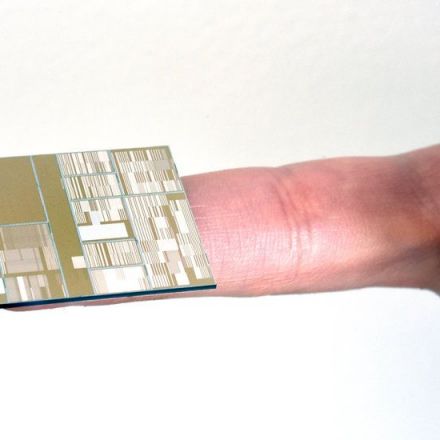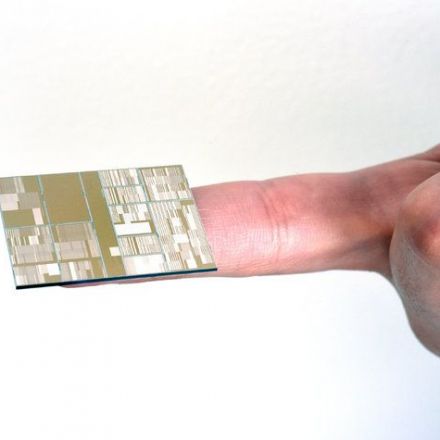

10 years ago
8
IBM Announces Computer Chips More Powerful Than Any in Existence
A consortium of which the company is a part has made working versions of ultradense seven-nanometer chips, capable of holding much more information than existing chips.
Continue Reading


























Join the Discussion
If this tech makes it to market, Intel might have enough competition to actually push forward again. With AMDs lacklustre offerings these past few years, I was beginning to believe we were past the golden age of processors. This new IBM tech may give us a few more years of real processor innovation before marginal improvements every year become the standard.
As an aside, since it'll probably be a few years before my next desktop build, perhaps my next gaming machine will be running IBM at it's core.
This is true and I completely agree. While everyone has heard of Moore's Law, few have heard of Moore's Second Law (or Rock's Law) and this is what people should really be watching. Technology will advance no matter what (even if its just small steps). Its the price tag for that advancement that if gone without some type of check, will leave everyone else in the dust. It will come to years before the average consumer will be able to afford an update.
Wiki Link
Thing is, if it makes it to market by Intel, it will most likely end up in a PowerPC chip. If the chip is powerful enough, I can foresee the possibility of Macs reverting back to PowerPC (If IBM decides to reenter the desktop computing market) which would be a huge crush performance wise against x86, and might even prompt Microsoft to dust off some old Windows NT PowerPC code and reimplement the port moving forward, which would be better for PC manufacturers as well because PowerPC is licensing free as opposed to x86.
When this can be used to mass production it could be great regarding the less power consumption, but will it be worth it the manufacturing costs? I mean, what could be a realistic time frame to this technology to be available for home consumers and will it be affordable for an average Joe?
Moore's law continues unabated. But we're going to have to see some mind-blowing innovations to get to those theoretical limits for transistor size. The next 20-30 years are going to be exciting.
Moore's law is a few years from hiting a brickwall on 2D space, that's the reason we're seeing things like HBM memory on AMDs latest videocards. The solution to keep it going is stacking chips in 3D. I can't wait to see who's gonna come with the fisrt stacked CPU or GPU.
Does Moores law count from when Processors are released, or when they are first developed? If so, it'll be at least 5 years until we see Moores law slowing down due to 2D space - this tech is seen as a major breakthrough to keep Moores law up-to-speed, but won't be commercially available for at least 2 years..
It's going to be so exciting, I just wish we had more Intels AMDs and NVIDIAs in the world.